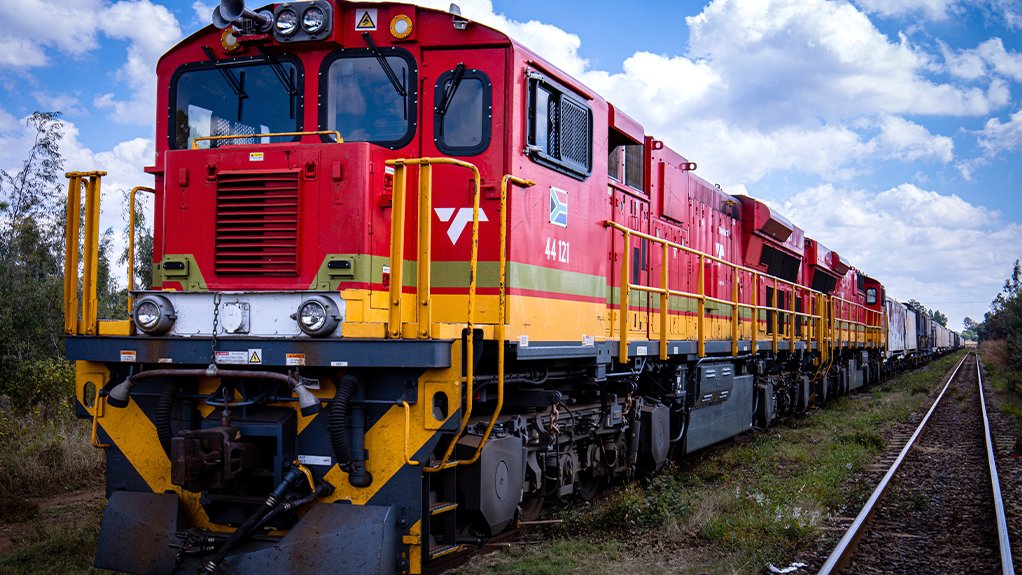- To download a copy of the Minister's speech, click here1.13 MB
Finance Minister Enoch Godongwana has not “closed the door” on Transnet’s move to secure a reported R100-billion in balance-sheet support to assist with its recently released turnaround plan. However, in a Medium-Term Budget Policy Statement (MTBPS) briefing, he insisted that far more engagement was required by the troubled State-owned freight logistics utility to build trust with government on whether it was was ready to cut costs and improve efficiencies before “presenting an invoice”.
He also indicated that he was not interested in negotiating with the group through the media.
In unveiling the recovery strategy days ahead of the MTBPS, Transnet chairperson Andile Sangqu said the indebted State-owned enterprise would not be able to deliver on the turnaround plan without a capital injection from the shareholder.
Media reports indicate that Transnet has requested relief covering R61-billion of its R130-billion debt, as well as a R47-billion equity injection.
National Treasury officials confirmed with Engineering News separately that there had been some initial engagements with the freight logistics utility on the plan, but said that any support could arise only after a “robust and rigorous process”, which had not yet been undertaken.
The officials noted that it had taken nearly one-and-a-half years to conclude the R254-billion Eskom debt-relief plan, which Godongwana announced in February, and which was promulgated in the form of the Eskom Debt Relief Act in July.
The National Treasury had now also proposed amendments to the Act to convert the Eskom loans form non-interest-bearing to interest-bearing, as well as to ensure that the Minister could withhold funding if certain conditions were not met, including those related to the sale of noncore assets.
Such stricter conditionality enforcement would be broad-based across all State-owned company bail-out beneficiaries, with Denel having received only a portion of its R3-billion bailout, owing to a lack of progress on the sale of noncore assets.
Any relief would also only arise once there was evidence of “self-help” at Transnet aimed at reducing costs and bolstering efficiencies, as well as initiatives to crowd-in private sector participation on the ailing rail network and at the ports.
Crucially, Godongwana said government would want to see evidence that Transnet’s corporate and operational plans were aligned with the Freight Logistics Roadmap, which was close to being finalised.
“The Roadmap sets out a clear path for enhancing efficiencies, facilitating the introduction of competition and leveraging the financial and technical support of the private sector,” the Minister said in his actual address.
However, the speech also indicated that the National Treasury was working with Transnet and the Department of Public Enterprises to ensure that Transnet could “meet its immediate debt obligations”.
The National Treasury also acknowledged that Transnet continued to experience weak profitability and deteriorating liquidity owing to operational challenges, a high debt burden and low cash flows. Nevertheless, Transnet’s issued guarantee remained at R3.5-billion.
The MTBPS does reflect, however, on the damaging economic impact that Transnet's deteriorating rail performance and underperforming ports are having.
“The cost of rail inefficiencies last year is estimated at R411-billion,” the statement reads, adding that the performance also reduced tax revenue.
It highlights the formation of the National Logistics Crisis Committee, which it says aims to improve the operational performance of freight rail and ports, restructure Transnet to ensure it is financially sustainable and implement reforms to create an efficient, competitive and modern freight logistics system.
“This work will be integrated with interventions under way within Transnet, including rehabilitating the rail network to improve service delivery, deploying digital solutions to improve efficiency and responsiveness, improving security and reviewing cost allocations to improve returns.”
The statement notes that Transnet Freight Rail has taken the first step in separating its operations and infrastructure management functions to facilitate competition among train operators.
“The Transport Economic Regulator will be established in early 2024, which will ensure fair access and transparent pricing on the rail network.”
EMAIL THIS ARTICLE SAVE THIS ARTICLE ARTICLE ENQUIRY
To subscribe email subscriptions@creamermedia.co.za or click here
To advertise email advertising@creamermedia.co.za or click here











